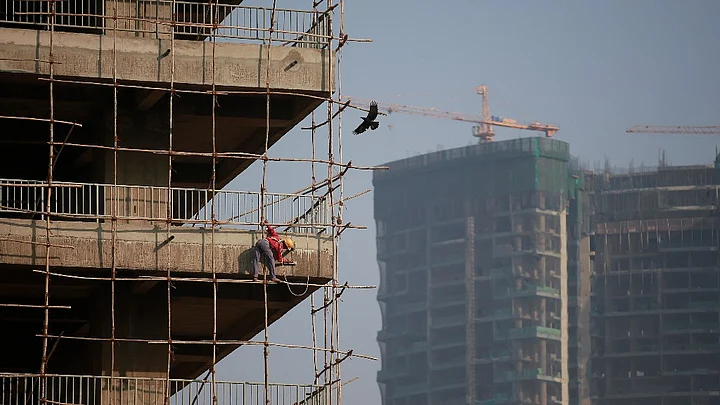G Nanaprakasham Rajamarian was short on cash. Two years into his job at a construction site in Saudi Arabia, his sponsor demanded more money to renew his work permit. Failing which, he would keep his passport to keep him from returning home.
But Rajamarian, who had left his home in the coastal district of Kanyakumari in south India in 1994, didn't have the money to buy his freedom.
More than 20 years after he was stranded in Saudi Arabia with an expired work permit, no pay, little food and no means to fly back, Rajamarian came home to India last week under an amnesty scheme offered by the Saudi government.
I kept trying to come back, but people kept telling me I needed to documents from my sponsor, which was impossible. So I stayed on, doing odd jobs to survive. For the last one year, I survived only on black tea and dry chappati.G Nanaprakasham Rajamarian
The Kafala Sponsorship System
There are an estimated six million Indian migrants in the six Gulf states of Bahrain, Kuwait, Qatar, Saudi Arabia, United Arab Emirates and Oman, many of them trafficked and exploited, campaigners say.
Under the kafala sponsorship system, foreign workers are required to have an in-country sponsor, who is usually their employer and is responsible for their visa and legal status. Human rights campaigners say this system allows for exploitation of workers.
Rajamarian's account of his life as an illegal migrant in the Saudi city of Al Baha, doing odd jobs and chasing officials is a familiar story for thousands of migrant workers, they add.
Rajamarian left home when he was in his late thirties, to save money for the weddings of his four daughters.
I was not earning enough at home and also tended to spend a lot on drinking. I saw a better opportunity and decided to go for it.
For two years, the decision to migrate seemed like a good one. But, sometime in 1996, two years into the job, Rajamarian's sponsor demanded more money to renew his residence and work permits.
I didn’t have enough saving to pay for a visa renewal, so I requested them to give me an exit visa and return my passport. They asked for 5,000 riyals ($1,300). I bargained hard and they brought it down to 1,000. But I only had 350 riyals in my pocket.
Stuck, with no work and little money, he went to the police to lodge a complaint. They sent him to some labour officials who sent him back to the sponsor.
I tried very hard but didn’t have enough money to even reach the Indian embassy in Riyadh. I called home a couple of times but decided against telling them about my situation. They would have just worried and not known what to do.
Rajamarian started looking for odd jobs, to survive and send home money every few months. When he couldn’t afford his rent, he convinced the landlady to let him live in a goat shelter.
Rajamarian says a lot has changed in his village, the houses are bigger, the road less bumpy.
"I still have a daughter to marry so I will continue working," he said. "But this time at a construction site closer home."
(At The Quint, we question everything. Play an active role in shaping our journalism by becoming a member today.)
